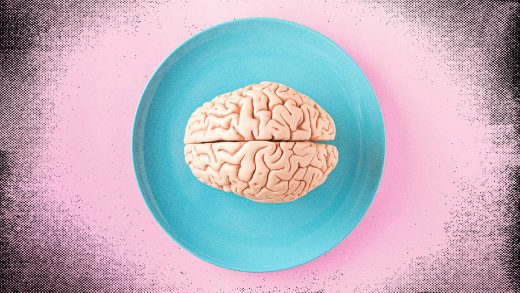The pile of research linking bacon, hot dogs, and sausage to dementia risk grows with new study
The pile of research linking bacon, hot dogs, and sausage to dementia risk grows with new study
Preliminary research presented at the Alzheimer’s Association International Conference tracked 130,000-plus people and their diets for up to 43 years.
People who regularly eat processed red meat—like bacon, hot dogs, sausage, kielbasa, salami, and bologna—may be at higher risk of developing dementia as they age, suggests preliminary new research presented at the Alzheimer’s Association International Conference this week.
The study, which has not yet been published in a journal, examined the relationship between diet and dementia risk by tracking 130,000-plus people for up to 43 years. Over time, more than 8% of the participants developed dementia. In the study, dementia risk rose by 14% for participants who ate roughly two servings of red meat a week as compared with those who ate fewer than three servings per month.
However, consuming a serving of nuts and legumes—like beans and peas, instead of a serving of processed red meat—every day may lower dementia risk, the findings suggest. In the study, replacing a serving of processed red meat with a serving of nuts, beans, or tofu daily was connected to a 20% lower dementia risk.
“By studying people over a long period of time, we found that eating processed red meat could be a significant risk factor for dementia,” said Yuhan Li, the study’s lead author and a research assistant in the Channing Division of Network Medicine at Brigham and Women’s Hospital, in a press release.
Health risks of ultra-processed foods
Most processed red meats are categorized as ultra-processed foods, which are created by numerous industrial processes and contain ingredients that wouldn’t typically be used in home cooking—like high-fructose corn syrup, preservatives, and artificial colors and flavors. Along with the vast majority of processed red meats, common items like chips, ice cream, and instant soups are considered ultra-processed foods, which contain high levels of refined carbohydrates and added fats.
While ultra-processed foods make up a significant chunk of many Americans’ diets—accounting for more than 55% of the calories consumed by U.S. children and adults on average—researchers have linked these products to numerous health conditions, including type 2 diabetes, heart disease, obesity, and some cancers and gastrointestinal diseases. In fact, research has found that ultra-processed foods are even as addictive as cigarettes and alcohol.
The saturated fat, sodium, iron, and nitrites (a type of preservative) in processed red meat specifically have been linked to a higher risk of developing certain conditions, such as stroke, chronic inflammation, increased blood pressure, and neurological disorders, studies have shown.
“Processed red meat has also been shown to raise the risk of cancer, heart disease, and diabetes,” Li said in the release. “It may affect the brain because it has high levels of harmful substances, such as nitrites and sodium.”
A new study spans 43 years
Li’s research was able to track subjects over decades by assessing their diets every two to four years. These assessments were based on people’s answers to questionnaires about what they were eating, specifically, how often they ate processed red meat, nuts, and legumes.
Of the 130,000 people who participated in the study, researchers found that more than 11,000 developed dementia. Among the subjects, eating an additional serving of processed red meat daily was linked to cognitive decline—which relates to the ability to understand and recall words and sentences—over time, according to researchers’ assessments.
However, consuming a serving of nuts and legumes instead of a serving of processed red meat daily was linked to less cognitive decline as participants aged, according to the research. In addition, the study did not discover a “significant association” between eating unprocessed red meat, like hamburgers, steak, and pork chops, and developing dementia.
The findings join a growing body of research from the past several years that examines the association between consuming more ultra-processed foods and cognitive decline. One study that tracked more than 72,000 adults from the U.K. ages 55 or older for a decade discovered that eating ultra-processed foods was associated with developing dementia.
Similarly, another study that involved more than 10,000 adults in Brazil found that consuming more ultra-processed foods was associated with more rapid cognitive decline.
What do the findings mean?
While studies like these have found an association between ultra-processed foods, cognitive decline, and dementia risk, they haven’t proven that these products are directly harmful to neurological health. Li’s research, although yet to be published, presents “a specific example of one way to eat healthier,” said Heather M. Snyder, vice president of medical and scientific relations at the Alzheimer’s Association.
“Eating an overall heart-healthy diet may contribute to decreasing one’s risk for cognitive decline and dementia,” the press release announcing Li’s study read. “However, there isn’t a single food or ingredient that, through rigorous scientific research, has been shown to prevent, treat, or cure Alzheimer’s or other dementia. In fact, it is unlikely that one food or ingredient will have a significant beneficial effect against a disease as complex as Alzheimer’s.”
Fast Company
(9)



